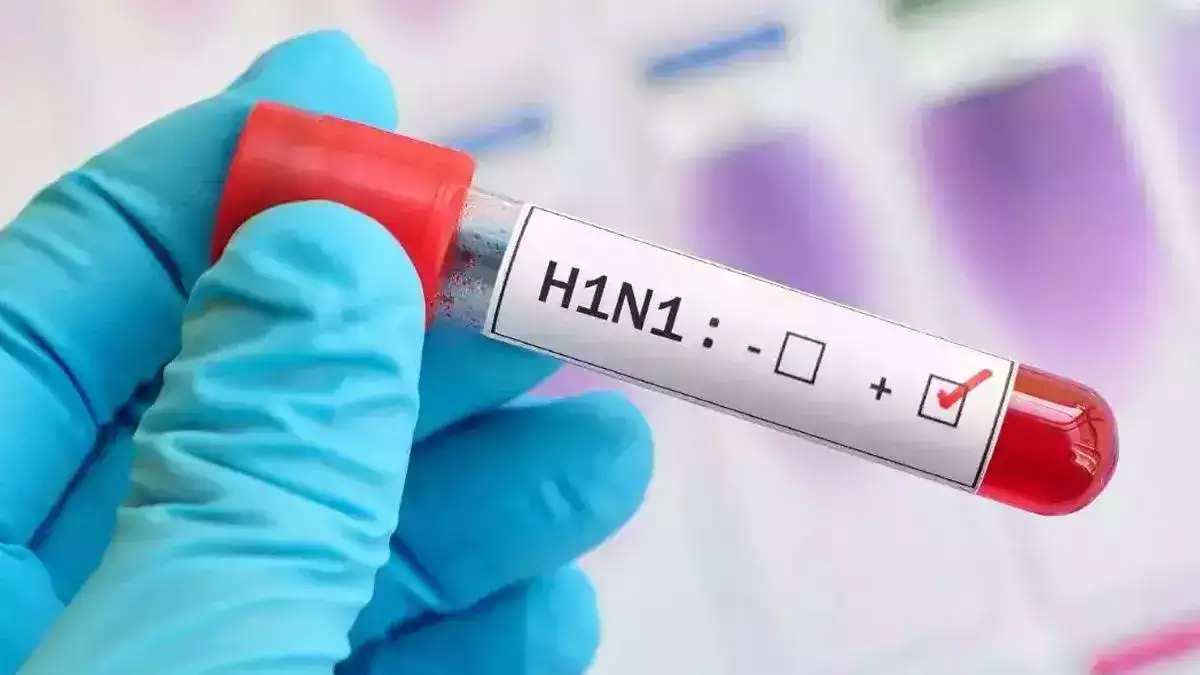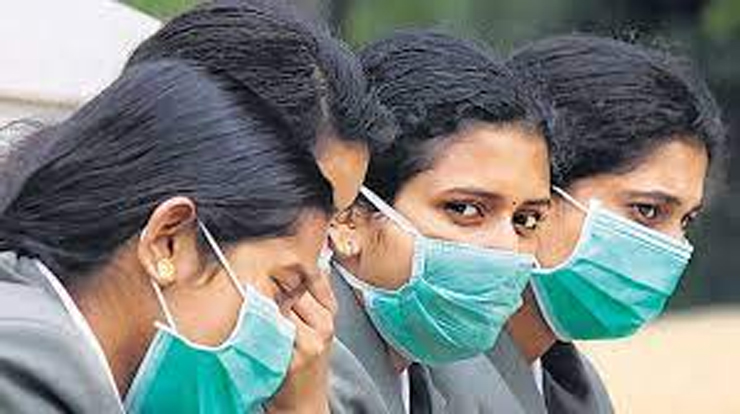
Delhi and the National Capital Region (NCR) are currently witnessing an unexpected surge in swine flu cases alongside a notable increase in other viral infections, such as cholera, dengue, and gastroenteritis. Hospitals across the city, particularly Outpatient Departments (OPDs), are seeing a flood of patients reporting symptoms related to these conditions. Medical experts are sounding the alarm and emphasising the importance of timely diagnosis to manage the health crisis effectively.
Table of Content:-
Rising Cases of Swine Flu
According to Dr S. Chatterjee, Senior Consultant in the Department of Internal Medicine at Apollo Hospital, the rise in swine flu (H1N1) cases has taken many by surprise. He explained that while viral respiratory infections are common during this time of year, the sharp increase in swine flu cases was unforeseen. “There are many infections happening at the moment, and it’s becoming a challenge to diagnose them at the right time. We are witnessing a lot of swine flu, a few COVID-19 cases, and an increasing number of dengue, typhoid, and even cholera cases,” he noted.

The spike in swine flu cases is particularly concerning because it adds to the already existing pressure on the healthcare system, which is also managing a spectrum of other infections. Dr. Chatterjee added, “It is critical for patients to report early to their doctors so that we can diagnose these infections in time and prevent complications. Over the last few weeks, we’ve seen so many cases that we have started suspecting swine flu quite frequently. Tests are being carried out for anyone presenting with respiratory tract symptoms to rule out swine flu and COVID-19.”
Seasonal Factors and Symptoms
While gastrointestinal infections are more typical during this season, respiratory tract infections are also on the rise. Dr Chatterjee explained that the weather could be contributing to the increase in viral respiratory infections like swine flu. He highlighted the usual symptoms of swine flu, which include a runny nose, sneezing, sore throat, cough, body aches, and high fever. However, he warned that in many cases, patients are experiencing more pronounced weakness than is typical for such infections.
Also Read: Chikungunya Poses Greater Threat Than Dengue in Telangana, Doctors Warn
The symptoms of swine flu overlap with many other respiratory illnesses, making diagnosis difficult without proper testing. Therefore, both healthcare professionals and the public must remain vigilant. Respiratory symptoms, even if mild, should not be ignored, especially for high-risk individuals, such as those with pre-existing conditions.
Mosquito-Borne Illnesses Also on the Rise
In addition to swine flu, mosquito-borne illnesses such as dengue and chikungunya are also seeing an uptick. Dr. Sameer Bhati, a Public Health Analyst, emphasized the importance of testing during this period. "In September, we usually see a spike in testing for mosquito-borne diseases like dengue and chikungunya. It's essential to rule out these infections in patients showing symptoms, as they can mimic other viral illnesses," he said.
With advancements in diagnostic testing, detecting multiple viral infections with a single test has become more accessible. This is crucial given the rising flu cases. Testing for H1N1 (swine flu) and other strains such as H3N2 remains essential, particularly for those presenting chest-related symptoms, Dr. Bhati noted. “We should never underestimate flu symptoms, and high-risk individuals must get tested without delay,” he added. The demand for swine flu, dengue, and chikungunya testing is expected to rise further as the season progresses.
Comorbidities and ICU Admissions
Dr Bhati also highlighted the severe impact of viral infections on individuals with pre-existing medical conditions. He explained that people with comorbidities, such as diabetes, heart disease, or weakened immune systems, are more vulnerable to severe complications from infections like swine flu. “Many of these individuals are ending up in intensive care units (ICUs),” he warned, stressing the need for extra precautions for high-risk groups.
Also Read: Suspected Mpox Case Reported In Kerala’s Malappuram; State On High Alert
Preventive Measures and Public Awareness
The surge in viral infections in Delhi underscores the importance of preventive measures. Healthcare experts are urging the public to take precautions, such as maintaining proper hygiene, wearing masks in crowded places, and getting tested at the first sign of illness. Early detection can prevent the spread of these infections and reduce the risk of severe complications.
The healthcare system is bracing for the continued influx of cases, and the public must remain alert. Both swine flu and other viral infections can spread rapidly, particularly in densely populated areas like Delhi. With timely diagnosis, appropriate treatment, and public awareness, the city can manage this health crisis more effectively.
Bottomline
In conclusion, Delhi's sudden surge in swine flu and other viral infections is a growing concern. As hospitals fill with patients battling these conditions, medical experts are urging people to seek early treatment and adhere to preventive measures. The combination of viral infections, mosquito-borne diseases, and other seasonal illnesses has created a challenging situation for healthcare professionals, making timely diagnosis and proper care more critical than ever.
Also watch this video
How we keep this article up to date:
We work with experts and keep a close eye on the latest in health and wellness. Whenever there is a new research or helpful information, we update our articles with accurate and useful advice.
Current Version